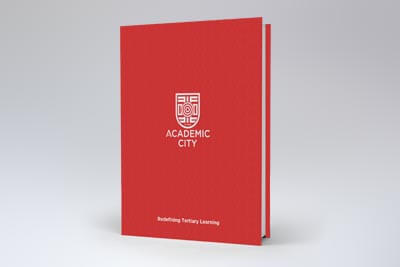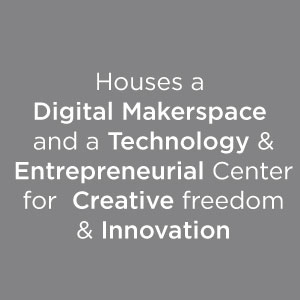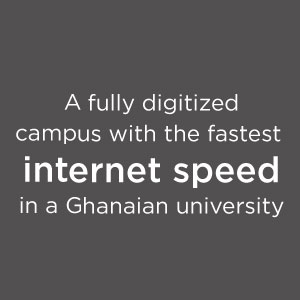

BSc Robotics Engineering
The Future is Robotics!
Gone are the days when the role of assistive devices in human life was pure fiction and tales. Today, the fast-evolving field of robotics has become an integral part of human life.
As the African continent strives for industrialization, it is important to note that efficient. productive yet cheaper work strategies across key areas such as manufacturing, agriculture, education, healthcare, among others, shall be pivoted around automated devices.
According to a publication on www.techjury.net on July 28, 2020, 88% of businesses worldwide plan to adopt robotic automation into their infrastructure, with robotics already employing about 150,000 people worldwide in engineering and assembly jobs. Between 2017 and 2020, the number of industrial robots alone installed across industries worldwide could exceed a total of 3.05 million, revealed by the Global Robotics Industry statistics. Africa’s advancement in robotics means grooming local experts, who understand the peculiar needs of the continent, and can apply the knowledge perfectly to build robots that can perform high-risk and complex tasks.
BSc Robotics Engineering at ACity
ACity’s groundbreaking, BSc Robotics Engineering degree program leads the efforts at developing a cadence of engineering programs that will push the boundaries of knowledge while establishing a foothold for students in jobs-of-the-future.In this program, emphasis is placed on design, analysis and modeling, programming, integration of Artificial Intelligence (AI), manufacturing, usage and management of robots. Additionally, the program is deliberately designed to play comfortably at the intersection of AI and Biomedical providing further impetus to new programs in Data Analytics and Advanced Autonomous Systems.
Our goal is to create a versatile graduate conversant in a broad area of Robotics and poised to adapt swiftly to the rapidly evolving field of robotics.
January 2026 Intake Is Open

Apply Now
Start your journey towards higher education by submitting your online application today! Click the 'Apply Now' button below and fill out the required information. Apply now and take the first step towards realizing your academic goals.
Top Careers in Robotics Engineering
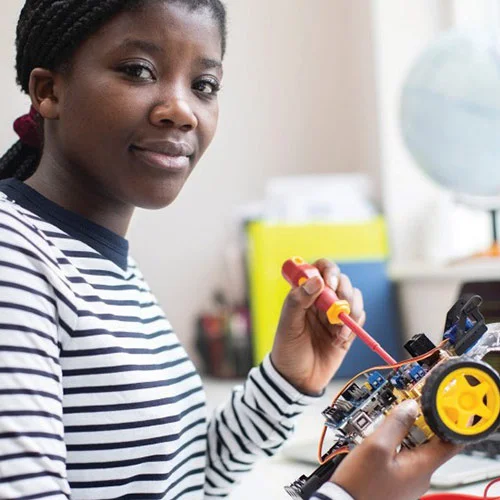
Wondering what unique opportunities are available for you in the world of work after a 4-year of exciting, explorative and hands-on Robotics Engineering undergraduate program at ACity?
Here are some top careers in the field:
| Automated Product Design Engineer | R&D Product Development Engineer |
| Quality Control Engineer | Front End Developer |
| Hardware Engineer | Robotics Engineer |
| Software Engineer | CAD Engineer |
Entry Requirements
Minimum C6 in 6 subjects including 3 core subjects (English, Mathematics, Integrated/General Science) and 3 elective subjects. (Physics, Elective Mathematics + Chemistry OR any other elective relevant to the chosen Program)
Minimum D or a pass in 6 subjects including 3 core subjects (English, Mathematics, Integrated/General Science) and 3 elective subjects. (Physics, Elective Mathematics + Chemistry OR any other elective relevant to the chosen Program)
Minimum of 5 credit passes in the IGCSE/O-Levels (Mathematics and English mandatory) and 3 passes in the A-Levels. (Elective/Add/Further Mathematics and Physics mandatory).
Minimum of 5 credit passes in the IGCSE/O-Levels (Mathematics and English mandatory) and a minimum score of 4 points in 3 Higher Level (HL) subjects. (Elective/Add/Further Mathematics and Physics mandatory)
Minimum of 50% overall average pass. (subject to approval NAB) Mathematics, English and Physics mandatory
Minimum GPA of 3.0 (Mathematics, English and Physics mandatory)

Want To Know
More Information
Get the course pdf or offline application form below
Course Outline
Communication Skills
French Language
Fundamentals of Innovation and Entrepreneurship (FIE) Seminar I
Introduction to Engineering
Introduction to Programming with Python
Physical Sciences
Pre-Calculus (with MATLAB)
Technology and Society
African Studies
Fundamentals of Innovation and Entrepreneurship (FIE) Seminar II
Logic and Critical Thinking
Text and Meaning
Introduction to Multidisciplinary Design
Programming in C
Analytic Geometry and Calculus I (with MATLAB)
Circuit Theory
Engineering Mechanics
Fundamentals of Innovation and Entrepreneurship (FIE) I
Leadership Seminar I
Introduction to Material Science and Engineering
Analytic Geometry and Calculus II (with MATLAB)
Artificial Intelligence and Robotics
Basic Electronics
Computer-Aided Design and Manufacturing (CAD/CAM)
Mechanics of Materials
Fundamentals of Innovation and Entrepreneurship (FIE) II
Sensors, Measurements and Instrumentation
Applied Linear Algebra (with MATLAB)
Probability, Statistics and Reliability (with MATLAB)
Analogue and Digital Electronics
Fluid Mechanics
Unified Robotics I: Actuation
Leadership Seminar
II System Dynamics
Differential Equations and Numerical Methods (with MATLAB)
Machine Design
Microprocessors and Microcontrollers
Signals and Systems
Unified Robotics II: Sensing
Wireless Sensor Networks
Project Management, Engineering Economics and Risk Analysis
Automatic Control Systems
Digital Signal Processing
Embedded Systems Machine Learning
Machines and Drives
Unified Robotics III: Manipulation
Advanced Instrumentation
Autonomous Agents
Computer Vision
Industrial Robotics
Industry Internship
Project Phase I
Unified Robotics IV: Navigation
Environmental Science and Engineering
Professional Ethics and Values
Modelling and Analysis of Mechatronic Systems
Project Phase II
Real-Time Digital Signal Processing



